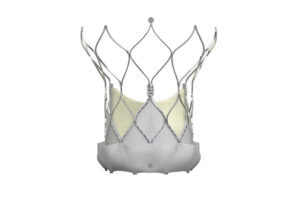 Abbott’s Navitor transcatheter aortic valve implantation (TAVI) system has received CE mark for the treatment of symptomatic, severe aortic stenosis in patients who are at low or intermediate risk for surgery.
Abbott’s Navitor transcatheter aortic valve implantation (TAVI) system has received CE mark for the treatment of symptomatic, severe aortic stenosis in patients who are at low or intermediate risk for surgery.
The announcement of the expanded indication for the device follows the presentation of late-breaking 30-day and one-year data from the VANTAGE study, which assessed the safety and efficacy of the device in the low- and intermediate-risk population, at the European Society of Cardiology (ESC) 2025 Congress (29 August–1 September, Madrid, Spain). The study’s results were simultaneously published in JACC: Cardiovascular Interventions.
“The VANTAGE study provides the scientific backbone for expanding Navitor’s indication to low- and intermediate-risk patients. The data are exceptional across both populations, confirming that the Navitor valve performs precisely as designed,” said Nicolas van Mieghem, (Thoraxcenter, Erasmus University Medical Centre, Rotterdam, the Netherlands), who serves as principal investigator of the VANTAGE trial. “Up to 50% of younger patients with aortic stenosis will also get coronary artery disease in later years, and Navitor’s design preserves options and ability for lifetime disease management if future cardiac interventions are required.”
The self-expanding device features a fabric cuff that is designed to reduce or eliminate paravalvular leak (PVL), as well as intra-annular leaflets and large frame cells to facilitate future access to the coronary arteries.
Results from the VANTAGE study showed Navitor met all safety and effectiveness primary endpoints. Among the first 262 patients with 12-month follow-up completed, there was a 2.3% rate of all-cause mortality or fatal/disabling stroke. No patients had moderate or greater PVL at 30 days and 13.6% had mild PVL at the same timepoint. There was a high rate of technical success (97%) with no procedural deaths, and the device sustained a favourable haemodynamic performance at 12 months.
“Navitor is a strong example of how Abbott continues to evolve its structural heart portfolio to meet the growing demand for minimally invasive alternatives to open-heart surgery,” said Sandra Lesenfants, senior vice president of Abbott’s structural heart business. “Aortic stenosis is a life-threatening condition that can progress rapidly, and this expanded indication for Navitor means that patients have more options that can help reduce their symptoms and improve their lives.”
The Navitor TAVI system is currently approved in the USA to treat people with symptomatic, severe aortic stenosis who are at high or extreme risk for surgery.










